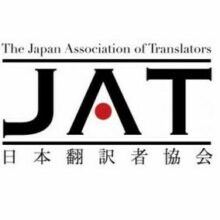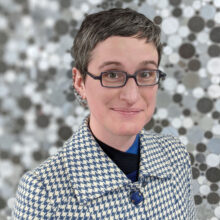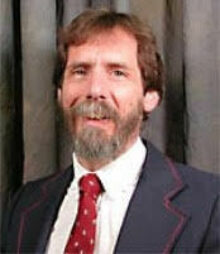IJET-32 (May 25–26, 2024)
Sessions | IJET-32 (May 25–26, 2024)
Protecting your life online - simple steps to securing your data and identity
This session walks you through the ever evolving cybercrime trends, how these can impact your daily lives and what you can do about it: as an individual, as a business owner and as a contractor/vendor to other businesses. The goal of the session is both inform and also empower you with simple steps and changes you can make and habits to adopt which will go a long way towards helping...
Speakers
Keynote Session: Asakusa to Broadway - translating traditional Japanese humour
Always funny and entertaining, Sunshine will talk about the difficulty in translating traditional rakugo humour for his frequent shows on Broadway and London's West End, with the possibility of an example or two.
Speakers
ChatGPTの翻訳への活用(翻訳者に役立つプロンプト)
ChatGPTの有用な活用法の一つとして、翻訳が挙げられている。一方で、顧客との機密保持の関係で、多くの場合で個人翻訳者はChatGPTで直接翻訳をすることは禁止されている。この講演では、直接翻訳をすること以外での、翻訳者にとって役立つプロンプトの基本的な書き方と実際のプロンプトを説明する。講演者は医薬翻訳者であるため、例文などは医薬文書を主に使用するが、プロンプトの一部を変えることにより、他の分野の翻訳でも応用できるプロンプトを紹介する。また、機械翻訳やChatGPTなどの大規模言語モデルが日常的に使用される時代に、現在のAIができること・できないことを整理し、個人翻訳者が仕事を継続する方法について、発表者の個人的な考えを説明する。
Language: 日本語
On video: Yes
Speakers
日英通訳に欠かせない【主語】の決め方
日本語を英語に訳す際、主語を正確に当てることは言うまでもない重要なステップです。しかし、その主語をどのように選択するかは、簡単なことではありません。このセッションでは、文法やコンテクストから読み取れる手がかり(clues)を紹介します。また、実際の通訳業務から引用した例文を使って、主語の選択を実際に練習する機会も提供します。通訳者としてのスキル向上に向けて、主語の選定においてより確実なスキルを身につけましょう。
Language: 日本語
On video: Yes
Speakers
Integration of AI into Translation Tools
This presentation will give an overview of how AI is influencing translation tools and will review some of the ways translators can benefit, deal with and accommodate these developments. It will take a look at some integration strategies and how human translators can interface with AI in a productive manner through translation tools. This presentation is not meant to be comprehensive, but is...
Speakers
ATA Certification (J2E)
The workshop begins with a brief overview of ATA’s certification process, testing procedures and grading standards. Participants will then divide into two groups and work through a Japanese passage that is similar to the passages used for the actual exams. A grader in the ATA certification program will lead each group and will provide feedback on participants’ translations. For more details...
Speakers
Everything Is Connected: Empowering Your Business with a Diversified Mindset
You are making a living with what you truly love - translation and interpretation. However, you may sometimes encounter additional opportunities from clients and new business stages to diversify your services based on your current skillsets. In this session, I will talk about how I started my business alone and successfully built a diverse team that can address comprehensive client needs from...
Speakers
Seeking Higher Ground: Legal Translation
Sponsor's midday presentation by Okabe & Yampolsky
This talk is for anyone interested in learning about legal translation, including the nature of the work, opportunities for work, what is required of translators, the impact of machine translation, the current state of the market, and future outlook. Time permitting, we will also consider the economics of the translation business in...
The role of the right brain and gut in human’s continued domination of AI
After overviewing the two main AI translation technologies, I will present a big-picture view of AI and its potential impact on the labor market, both broadly and for translators/interpreters. This is by necessity a synthesis of neuroscience, psychology, evolutionary biology, quantum physics, and the philosophy of consciousness. My argument that humans will be aided rather than replaced by AI...
Speakers
Reading the Room: Using Cultural Awareness as your Unique Value Proposition
With so many AI options available, how can human translators carve their space in the market? In this session, discover how cultural awareness can become your Unique Value Proposition (UVP) when marketing yourself. Using a personal example of having a story translated for a Japanese audience, we will explore the advantages human cultural knowledge has over machine translation and how to...
Speakers
Patent Translation in the Age of Artificial Intelligence: The Good, The Bad & The Ugly
This session is geared towards new and experienced patent translators, particularly those who are considering, or have already begun, incorporating neural machine translation (NMT) tools into their workflow. We will present numerous real-life examples of how WIPO’s in-house NMT tool renders patent text (claims etc.) and discuss where it tends to excel and where it fails. We will also discuss...
Speakers
Breaking Out of the Box: Creative Techniques for Crafting Localizations that Audiences Love
Want to take your media localization from ordinary to extraordinary? In this workshop, we'll review key concepts in translation theory and how they can be applied to tricky translations in audiovisual media. Then, using these new tools, you'll flex your creative muscles and challenged to come up with your wildest, most out-of-the-box localizations for sample scenes and game events, and explain...
Speakers
A comparison between generalists and specialists
A moderated panel discussion comparing generalists and specialists, their differences in work styles and lifestyles, and their respective advantages/disadvantages. Each panelist is a veteran translator who will provide useful advice about career development based on their personal experience. Audience questions are welcome.
Speakers
I am wearing....Pants! Why Japanese translation is so difficult.
During this session, we will undertake a journey through the evolving landscapes of language services and technology to explore and better understand our identities as translators.
Our journey will begin with a detailed look at fundamental translation theories and particularly those pertinent to Japanese translation. While discussing the practical applications of those theories, we will...
Speakers
Building an (Almost) Unsinkable Ship through Smart Competition and Collaboration: A Networking and Business Development Proposal for 2024 and Beyond
Part 1: Discuss my personal journey to where I am today as an interpreter and translator, paying special emphasis on how I was able to expand my business thanks to the many connections I've made along the way, how some of my favorite projects came about, as well as some of the crises that led me to rely on my network, leading me to new perspectives on how to better build our profession.
Part...
Speakers
Patent Claims 101: The What, Why and Wherein of Patent Claims
Intended for translators who are at the start of their careers and are interested in patent translation and for experienced translators who are considering expanding into patent translation, this presentation will provide a basic introduction to patent claims: what they are, why they are important, and some of the reasons why they are drafted the way they are. The presentation will look at...
Speakers
Practice Makes Perfect: The Axiomatic Truth About Interpreting
Practice makes perfect. Truer words were never spoken when it comes to interpreting. With enough practice, many aspects of the interpreting task become almost automatic, including common greetings, specialized terminology, and more. Developing interpreting skill beyond this sounds straight forward: just practice. Yet the challenges to “just practice” can feel insurmountable. How to find...
Speakers
Speed Networking (optional)
An optional session for anyone interested in breaking the ice and meeting other IJET attendees in an informal session. A chance to exchange business cards, increase your contacts, and strengthen your network within the translation community.
Defining Characters in the Fiction of Honda Tetsuya
Honda Tetsuya is an award-winning writer of Japanese detective fiction. The crafting of a complex identity for each major character is a prominent feature of Honda’s novels and short stories. In this presentation the speaker will discuss the techniques Honda uses to create a unique identity for each character and the challenges those techniques present for the translator. Translating...
Speakers
The agency perspective: Tips for freelancers working with agencies
Working with agencies.
The freelancer>agency>multi-language vendor>end-client pipeline. The pros and cons of the different models.
How do we decide to hire a translator/editor? What qualifications does a PM care about? What qualifications do the clients require?
What are the signs of a "good" translator?
Trials and tests - What is a reasonable volume to do for free? Red flags and...
Speakers
How to Beat the Machine
We've all heard that AI is coming for our jobs. What's a translator to do? While we might not know what the translation industry will look like in the future, we can employ best practices now to ensure that we are still needed when that future comes. In this session, the speaker will share a range of hard and soft skills she uses to make sure her work not only beats the machine but stands out...
Speakers
Writing Well using Plain Legal English Principles
This presentation will introduce some fundamental Plain Legal English concepts, which could help any wordsmith improve their writing. The speaker will introduce tips to avoid sesquipedalianism and excise legalese from contract language, and show useful examples of concise English in legal translation. With luck, audience members will walk away with a personal list of dos and don’ts as a...
Speakers
英日日英翻訳演習:For Better Translation, with AI?
Outline: まず、1985年から現在に至るJATと私との関わり(JAT Bulletin、IJET、PROJECT、新人翻訳者コンテスト、Translator Perspectives)と、その間の技術の発展( Fax、ワープロ、PC、インターネット、AI翻訳)を振り返ります。次に、参加者とディスカッションしながら英日・日英翻訳演習を行い、JATのモットー「心を伝え、人をつなぐ」、そしてIJET32のテーマ “Who knit‘ya? Who are we in the age of Chat-GPT?”について考えます。
Language: 日本語
On video: No
Speakers
Translating Intent, or Mind Reading?
No matter how technical or general the subject matter, selecting the best word can be weird. This is not a how-to session, but a discussion of hmm? really? why? Examples will come mostly from those strange documents called patents.
Language: English
On video: No
Speakers
ATA Certification (E2J)
It is recommended to attend the first part of the ATA Certification J>E Workshop, where an overview of the certification process is explaned. We will go into the English passage translation right away. If you are interested in attending, please contact Izumi by May 10 to receive the English to Japanese passage, which is similar to the passage used in the actual exam.
Language: English+日本語
On...






















